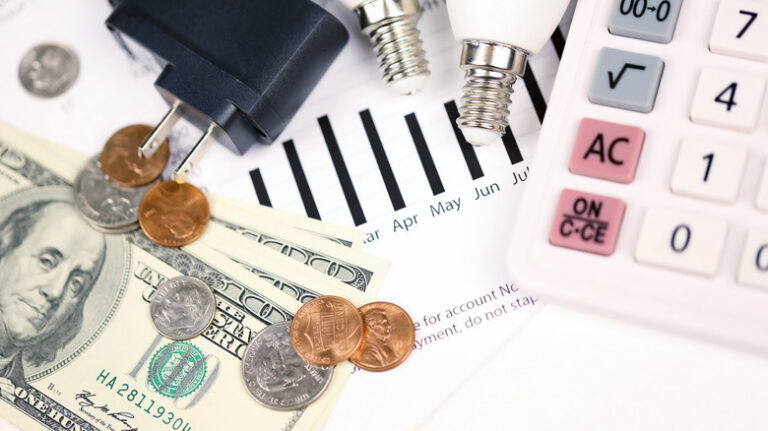Maintaining a warm and comfortable home during the colder months is essential, but doing so can also be quite costly. Many homeowners may need to realize that proactive home heating repairs could significantly reduce their energy bills. Over time, heating systems become less efficient due to wear and tear, leading to wasted energy and higher costs. We will explore how regular heating system maintenance and timely repairs BY Spencer Heat & Air, HVAC & ELECTRICAL can help save money on energy bills by improving efficiency, preventing bigger problems, and enhancing overall system performance.
Enhancing Efficiency Through Regular Maintenance
One of the key reasons why home heating repairs can help save on energy bills is by ensuring that the system operates at peak efficiency. Heating systems, whether powered by gas, electricity, or other fuels, are intricate mechanisms that require consistent care to perform optimally. Over time, components within the system can wear down, accumulate dirt, or become misaligned, reducing their effectiveness. Even small issues like clogged filters or worn-out thermostats can cause the system to work harder to produce the same heat. When this happens, the heating unit consumes more energy than necessary, leading to inflated utility bills. Addressing minor issues early on, such as cleaning out vents, lubricating moving parts, and replacing old components, can significantly affect how much energy is required to heat a home. Regular repairs and maintenance can restore the system’s efficiency, lowering the energy output needed for comfortable temperatures and energy bills.
Preventing Expensive Emergency Repairs
Another way home heating repairs save money is by preventing the need for costly emergency repairs or replacements. Homeowners who neglect the minor issues within their heating systems can snowball into much larger ones. For example, a small leak in a boiler or furnace can lead to corrosion, damaging critical components and causing the entire system to fail. Replacing a broken-down heating system or dealing with an emergency during the peak of winter can be financially draining. In addition to the cost of a new system, emergency service fees during off-hours or colder months can further inflate the expense. Regularly scheduling maintenance checks ensures that minor issues are caught and addressed before they escalate into major malfunctions. By investing in small repairs when problems arise, homeowners can avoid the steep costs associated with complete system failures and the need for new installations. In the long run, this preventive approach results in significant savings.
Improved Insulation and Heat Distribution
Home heating repairs can also improve heat distribution within a house, ensuring energy is not wasted on uneven heating or cold spots. A well-maintained system works more efficiently, evenly distributing heat throughout the home. On the other hand, malfunctioning systems may heat some rooms more than others, forcing homeowners to increase the overall temperature to maintain comfort in colder areas. For example, if a duct system develops leaks or radiators become blocked, warm air or heat may not reach all home parts as effectively. As a result, the system must work harder and consume more energy to achieve the desired warmth. Home heating repairs ensure that all components—ductwork, radiators, or vents—function as they should, delivering even and efficient heat across the house. This improves comfort and reduces the need to constantly adjust the thermostat, leading to reduced energy consumption and lower bills.
Extending System Lifespan and Efficiency
Extending the lifespan of a heating system is another significant benefit of timely repairs. When heating units are well-maintained and repaired as needed, they tend to last longer. Heating systems operating in suboptimal conditions due to neglected repairs are more likely to experience wear and tear faster, leading to a shorter operational life. Frequent malfunctions can contribute to early system failure, forcing homeowners to replace the unit sooner than expected. By addressing repairs and maintaining the system regularly, homeowners can extend the life of their heating unit, postponing the need for expensive replacements. A longer-lasting system allows homeowners to get the most out of their initial investment, reducing the overall cost of home heating over the long term. An efficiently functioning system, operating at peak performance, saves energy and money every year that it remains in service.
Impact of Smart Technology Integration
With the rise of smart technology, integrating smart thermostats and sensors into a home’s heating system can improve efficiency and reduce energy costs. Heating system repairs or upgrades provide an excellent opportunity to incorporate these energy-saving technologies. A smart thermostat can learn a household’s daily routines and adjust the heating settings accordingly, reducing energy usage when the home is unoccupied or during sleep hours. Additionally, smart systems can provide diagnostic alerts to homeowners, notifying them when components need maintenance, or the system is operating inefficiently. This early detection can prevent unnecessary energy loss by allowing for quicker repairs. Home heating repairs that include updating the system to be compatible with smart devices make it easier to control and monitor energy consumption, further contributing to savings on energy bills. The combination of a well-maintained system and smart technology ensures that energy is used most efficiently.
Read also: Energy Efficiency and HVAC Installation Services: What You Need to Know
Home heating repairs are an effective way to save money on energy bills by improving the efficiency and longevity of the system. Regular maintenance ensures that minor issues are caught before they become costly, major problems. By optimizing energy usage, improving heat distribution, and incorporating smart technology, homeowners can maximize their heating system’s performance while keeping energy costs low. Over time, the savings from repairs and preventive maintenance can significantly outweigh the cost of neglecting the system.
